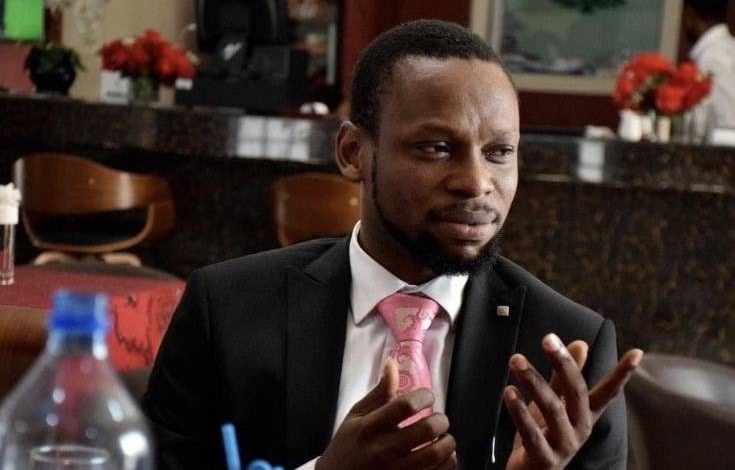FIJ: New Media Platform Breaks Into Industry With #EndSARS Investigative Series

The number of Nigeria’s investigative media outlets has just increased with the launch of the Foundation for Investigative Journalism (FIJ).
The online newspaper started reporting on Wednesday, Jan. 20, with the publication of the first of a three-part investigative series on the extrajudicial killing of End SARS protesters at the Lekki tollgate area last October.
Titled Portraits of Blood, the report highlights “the death threats, intimidation and reported incidents of murder obstructing the flow of information on the number and identities of victims”.
It detailed the experience of advocates whose lives were threatened during and following the protests and the accounts of people who witnessed the tragic incident, where according to Amnesty International at least 10 peaceful protesters lost their lives.
One witness who had previously been outspoken about what happened told FIJ three people in his neighbourhood had been arrested since they made public statements confirming the Nigerian military’s atrocities.
“Please leave me alone,” he insisted. “In fact, what I told you three weeks ago, I didn’t say them anymore. I withdraw them. You know, I don’t have money and I struggle to feed daily, but just coming out to inhale fresh air like this is an opportunity I am not yet willing to give up.”
Asides people going missing, strange deaths of people who made indicting online statements have also been recorded.
FIJ’s founder and former editor of multiple news platforms, Fisayo Soyombo, says the paper’s goals include helping people to access social justice and producing in-depth reports that “speak for the voiceless and expose injustice”.
He explained to the Guardian Newspaper: “For instance, one of the first stories we intend to run is that of a woman who went to hospital and was diagnosed of cancer and her breast was removed. Subsequent tests showed she never had cancer but the breast is gone. This is a woman in her early 30s, not yet married and no kids.
“So, how do you want that kind of person to live? Her breast is never going to come back and she is depressed. And guess what, the hospital in question hasn’t as much as said ‘sorry’ to her.”
He had always wanted to use journalism as a tool to make the society better, he continued.
“I realise that you cannot change the society because life, by design, is an unfair world. You can’t use journalism to stop kidnapping or corruption but you can use journalism to pressure the government into going after the kidnappers. You can’t end insurgency with journalism but you can use good journalism to graphically show the pains of insurgency and possibly attract help to victims; you can slow down the wheels of injustice.”
FIJ has various projects including the Investigative Clinic and Unseen Hand, which respectively aim to build the capacity of journalists and sustain conversations about published stories.
“Our vision is to use journalism as a tool for bettering the world, beginning from Nigeria. We want our journalism to help make Nigeria a more habitable place for all, especially for the lowly. We’re also determined to raise a new generation of Nigerian journalists that will value integrity, objectivity, impartiality and public interest over their pockets,” the non-profit states on its website.
Additional reporting by ‘Kunle Adebajo
Support Our Journalism
There are millions of ordinary people affected by conflict in Africa whose stories are missing in the mainstream media. HumAngle is determined to tell those challenging and under-reported stories, hoping that the people impacted by these conflicts will find the safety and security they deserve.
To ensure that we continue to provide public service coverage, we have a small favour to ask you. We want you to be part of our journalistic endeavour by contributing a token to us.
Your donation will further promote a robust, free, and independent media.
Donate HereStay Closer To The Stories That Matter





Hi Winnie Ishaku,
Thanks for sharing this informative and eye-opening article about the Foundation for Investigative Journalism (FIJ) and its new online newspaper.
It is excellent that Nigeria now has more investigative media outlets, especially when accurate and truthful reporting is more critical than ever.
The first article published by FIJ, titled Portraits of Blood, sheds light on the extrajudicial killing of End SARS protesters at the Lekki tollgate area last October.
The report highlights the challenges faced by advocates whose lives were threatened during and following the protests, as well as the difficulties in obtaining information about the number and identities of victims.
This is a powerful and necessary piece of investigative journalism, which shows how important it is to have a free press that can report on vital issues without fear of retribution.
FIJ’s founder, Fisayo Soyombo, has made it clear that the paper’s mission is to help people access social justice and to produce in-depth reports that “speak for the voiceless and expose injustice.”
He also talked about the importance of using journalism to pressure the government to take action against kidnappers and to graphically show the pains of insurgency to attract help to victims.
This is an inspiring mission, and I commend Soyombo and the entire FIJ team for their dedication and hard work.
I was also impressed by the Investigative Clinic and Unseen Hand projects that FIJ has launched, which respectively aim to build the capacity of journalists and sustain conversations about published stories.
These important initiatives will help ensure that the stories reported by FIJ have a lasting impact on Nigerian society.
I believe that the launch of the Foundation for Investigative Journalism is a significant development for Nigeria’s media landscape.
Their commitment to uncovering the truth and exposing injustice is admirable, and I look forward to reading more of their investigative reports in the future.